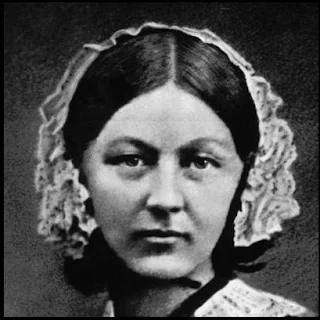A Review of March, Women, March by Lucinda Hawksley
March,
Women, March has been published to commemorate the
centenary of the death of Emily Wilding Davison, the suffragette who died from
her injuries after being dragged under the king’s horse at the Epsom Derby in
1913. It features diary entries, letters, anecdotes and propaganda – from both
the suffrage and anti-suffrage movements – and traces the long, hard journey by
which women in Britain moved from being the “property” of their fathers and
husbands to gaining greater legal recognition and rights and, finally, to
becoming enfranchised citizens with full voting rights.
My Thoughts
This is such a difficult review for me because I firmly
believe every human being should read March,
Women, March if only to understand what the suffragette movement was all
about, culturally, politically, economically and socially; if only to
understand why and how women such as, Florence Nightingale, Elizabeth Garrett
Anderson, Annie Besant, Suffragist leader Lady Emmeline Pethick-Lawrence and
her daughter Christabel, amongst others, were fighting for equality.
March, Women, March
begins in 1792 with the publication of Mary Wollstonecraft’s A Vindication of the Rights of Women through
to the General Election of 1929. Within these pages, during these one hundred
and thirty seven years, Author, Lucinda Hawksley, uses battle cries and slogans
of the Suffragette Movement of the early 20th century, personal
recollections taken from letters and memoirs, newspaper reports and other
first-hand accounts to explain every aspect into the meaning of, for, and
behind the Suffragette Movement with the purpose to understanding who these
women were and why they put their beliefs, and their lives on the line with the
goal of equality going forth before them with every step they took.
This is an extremely passion-filled, emotionally written,
well-researched book covering an important time in women’s history. Perhaps,
the one surprise for me was the beautiful inclusion of nineteenth-century female
author novel excerpts used to support chapters discussing suffragette
women. For instance, in chapter two you
will find excerpts from Anne Bronte’s The
Tenant of Wildfell Hall. In chapter four is Woman in White; chapter six is Pride
and Prejudice, etc.
Florence Nightingale, English nursing home reformer (1820-1910), is shown here in 1845. She became the first woman to receive the Order of Merit for her tireless efforts during the Crimean War.
Elizabeth Garrett Anderson (11836-1917) was the first woman doctor in England. Anderson had become a nurse at Middlesex Hospital, London; after being refused entry at several medical schools because she was a woman. However, she later discovered that the Society of Apothecaries did not specify that women were banned from taking examinations, and in 1865 she passed their examination to become a doctor.
Annie Besant (1847-1933), in 1895, The English theosophist, who was prominent in the Fabian Society, published a pamphlet on birth control for which she was brought to trial on a charge of obscenity. She moved to India where she lectured and became the Hindu nationalist leader.
Suffragist leader Lady Emmaline Perthick-Lawrence (1868-1954) celebrates her release in 1909
The British suffragette leader Emmaline Pankhurst (1858-1928), and her daughter Christabel (1880-1958), founders of the Women's Social and Political Union, wearing prison uniforms during a spell in jail in 1908 for demonstrating for women's rights.
Emmaline Pankhurst is arrested at a demonstration outside Buckingham Palace, London, 1914.
This is the second book cover with a different title but the book is the same.








Comments
This is such an emotive subject. The things women had to put up with throughout history are unbelievable. The ideals at the time, especially in Victorian England, made it very difficult for women to get on. No wonder women like Emmaline Pankhurst fought back and championed women's rights.
Thank you for this thought provoking blog.
Kind regards
Kevin
I'm so glad you will be getting this. Thanks for stopping by and commenting. I enjoyed meeting the women in these pages but Annie Besant left quite an impression on me, unexpectedly!
I completely agree and we musn't forget what women went through and fought for just to have equal rights. Thanks so much for stopping by and commenting.